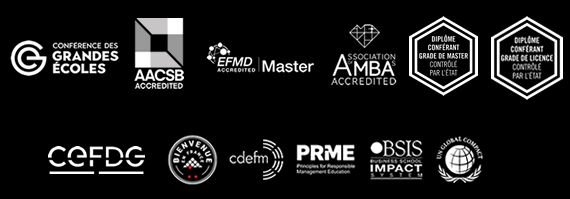In a globalized economy, doing business internationally has become the norm, allowing cultural sensitivity to be at the forefront. All industries today frequently use multinational teams, and in recent years, managers, recruiters, trainers, clients, and suppliers have become more and more diverse, leading to greater cultural sensitivity when talking about international business.
Knowing how culture influences how businesses operate around the world and understanding the challenges and opportunities influenced by geographic location and cultural backgrounds can change the game for international business.
International Business and Cultural Awareness Challenges
Diversity in the workplace is an effective strategy for fostering inclusion and creativity. When it is effectively incorporated into a company’s business model, it can be a significant magnet for top-tier international talent. All of this, though, may go wrong if it is not handled properly.
Struggle to adapt international business strategies locally
Understanding the local culture and how it affects consumer demand and decision-making can prevent financial and human resources consequences; that’s why an adaptation plan is encouraged.
This is where the concept of “glocalization” comes in: Glocalisation is a phrase that has gained popularity as global corporate expansion increases. The terms “globalization” and “localization” are combined to form the term “glocalization,” which refers to the process of customizing processes, goods, and services that are sold globally to meet local demands.
Lack of implementing diversity management
Despite the fact that workplaces are becoming less uniform on a daily basis, there are still a number of issues, including racism, discrimination, and divergent sociopolitical belief systems. When employees from different cultural backgrounds are joined together to work toward a shared objective, all of these factors might impede team cooperation.
Businesses cannot take advantage of the benefits of a diverse workforce if they fail to manage and resolve these issues efficiently, but how?
Overcoming Cultural Awareness Constraints
In today’s global economy, understanding how cultural awareness training is the key to succeeding in a foreign market; it’s crucial.
Diversity training
Employees might benefit from diversity training by being more aware of any unconscious prejudices and other obstacles that might prevent them from fully embracing diversity and inclusion. Fostering teamwork, opening up new opportunities, and encouraging favorable interdepartmental attitudes are crucial to establishing and sustaining a healthy work environment.
Clear communication
And most importantly in a polite and non-judgemental manner, especially when dealing with people who speak different languages. This will help prevent misunderstandings and encourage members to share more of their culture and enrich the workplace.
Cultural awareness is more important than ever as firms continue to operate in a growingly globalized market. Businesses that can successfully conduct cross-cultural business by taking into account and respecting the distinctive variations that make up the numerous societies and groups that populate our world will experience positive growth.
Start Right
EMLV has been known to become the main hub that brings together international students from around the world in one place to learn from one another and lead by example. The classroom, case studies, and projects are perfect examples of miniature scenarios of what happens in the real world.
Students who enroll in the MSc International Business program receive training in ethical company conduct in a global business setting. Students from diverse academic backgrounds are welcome to enroll in this program, which will address both theoretical and practical facets of global management.
The curriculum trains prospective managers to join the global community in this digital age by examining the numerous cultural and geopolitical aspects of today’s complicated international business environment. Students are prepared for professional options in management, digital marketing, corporate finance, and trade on the global stage by taking this course.
Lead by example and participate in global change.





















